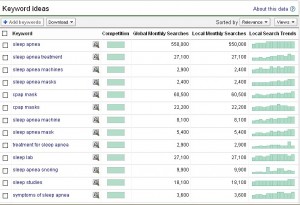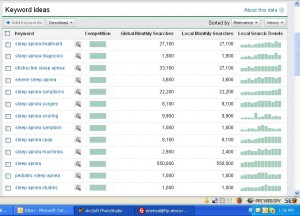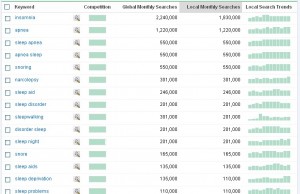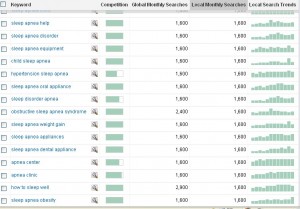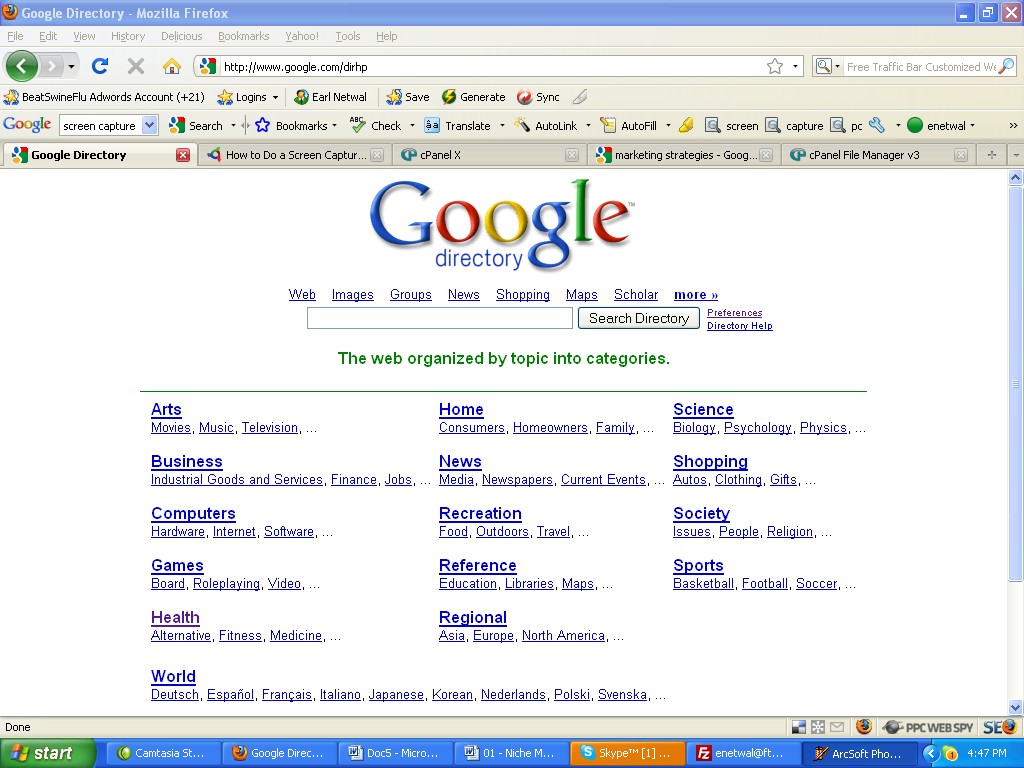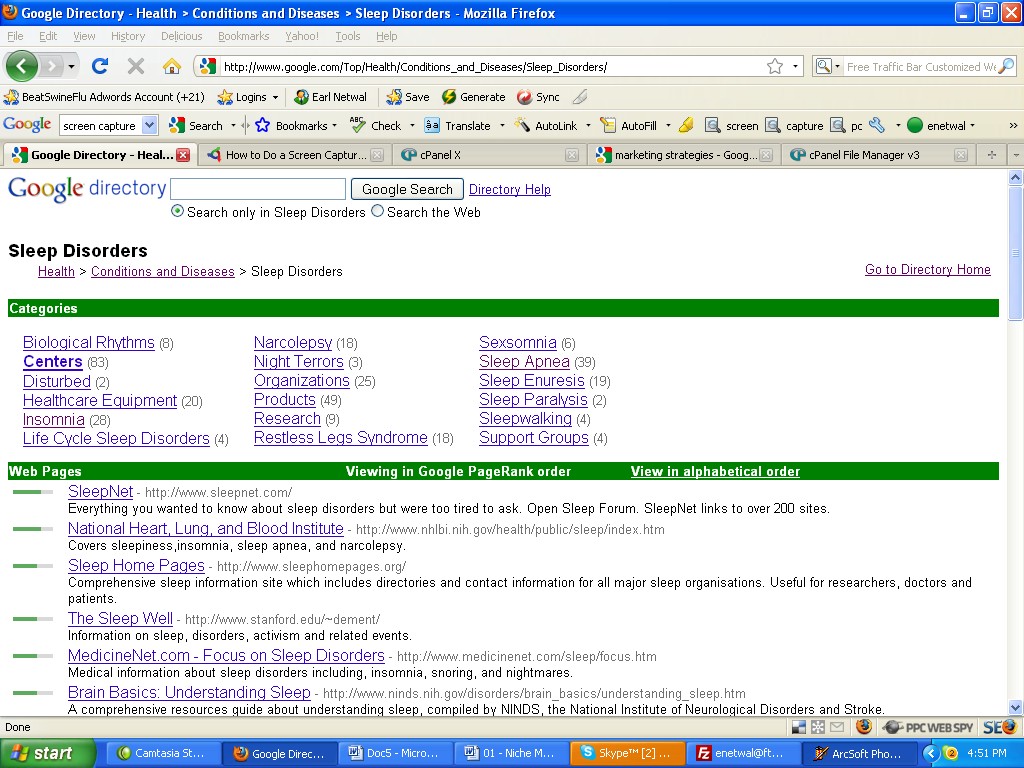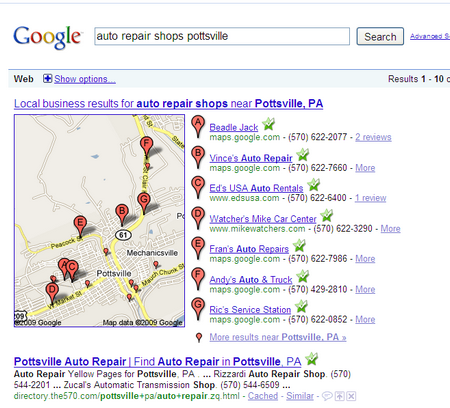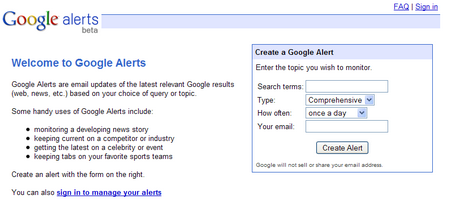Niches and keywords related to niches can vary significantly over time. Had Google been in existence 100 years ago, you would likely have found a lot more listing for Buggy whips than you would today. People change, markets change and thus its a good idea to pay attention to trends within the market place.
That turns out to be easy when you you use Google Trends.
You may have noticed a little magnifying glass next to keywords displayed on the Google Keyword tool we looked at in out last post. Had you clicked on that you would be taken to a page in Google Trends for that particular keyword. Also in the keyword tool is a chart showing the relative strength of searches by months for the prior 12 months.
This is valuable information that you should take note of.
If you want to really get into trend analysis though, the place to go is Google Trends itself. Again the easiest way to get there is to use Google Search and Search for “Google Trends.” Or you can remember the URL as http://www.google.com/trends
Once there you will see a Google Logo, a search box, some example searches, and two lists. One lists hot topics, and the second lists Hot Searches.
These hot topics and searches will change rapidly, but are a good indication of what is currently hot online. If you are blogging, this can be a great way of keeping up with where the most activity is online. One strategy is to develop a blog posting on multiple hot topics on a daily basis and bookmarking them. If you keep it up over time, you can drive a lot of current events type traffic to your blog. This you can in turn monetize with adwords or other promotions.
In general though, as part of our niche market research project we are more interested in longer term trends.
Say we are interested in the diet market. We could type the phrase “lose weight” into the Google Trends search box and get the following results.
There is quite a bit of information here. Perhaps the most important is that the overall trend appears to be increasing over the five years of data reported on the chart. While it may be difficult to see above, there also appears to be a dip just before the Christmas holidays, followed by a spike with the new year.
On the right are various news articles whose publication is noted on the chart with letters marking their date of publication. This can have a significant impact on some searches although it appears to be minimal in this particular case.
Finally on the bottom you can discover which regions of the world are most interested in the keyword phrase. In this case, the US followed by Australia, Singapore and Ireland. To the bottom right, these trends are even further broken down by cities. The results vary from time to time, but for some reason there appears to be heightened interest from a number of Texas cities at the moment. It appears not everyone is interested in being the biggest in everything in Texas.
Lets look at another search term. This time we will explore “Golf Slice.”
When we do, we see a distinct seasonal pattern. Searches for “golf slice” are significantly higher in the summer than in the winter. Not too hard to understand. Of note the peak number of searches appears to be decreasing, but the breadth of the base appears to be widening over time. This suggests that more people are looking for information on their golf slice throughout the year, than may have been the case before, but the niche is still strongly seasonal.
One more example to make a final point a bit more emphatically. This time we will search for the keyword phrase, “how to make money online.”
Here we see a very dramatically rising trend. This must certainly be a top candidate as a niche to explore. But lets look to the bottom of the chart again and look at the regions doing the search. Topping the list is Nigeria, followed by the Philippines, Malaysia, India, and South Africa.
Nothing wrong with that, but it could be a problem if you are primarily interested in selling a product to the North American market. Also note at the bottom right is a listing of the languages spoken by the searchers. The top language is Tagalog which is the Philippino national language followed by English.
Hopefully, you can see the value of understanding the trends in the marketplace, and the role that this free tool can play in helping you in both the niche selection process and also how you might plan for seasonal variations within your market.




